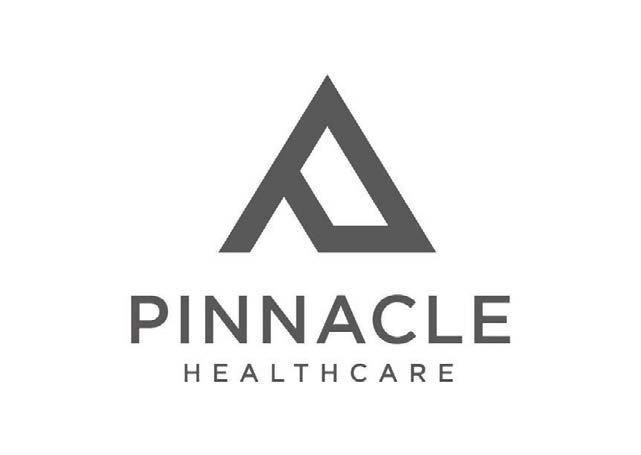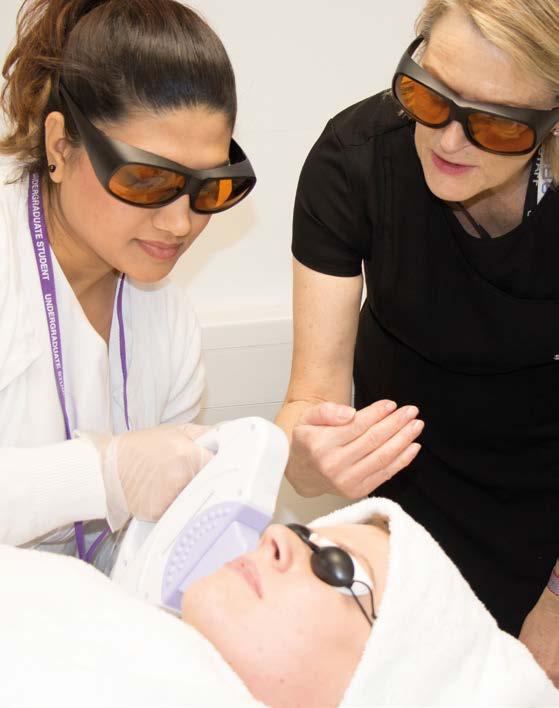
19 minute read
New
University helps NHS and key workers in coronavirus battle
Hundreds of face shields to help protect frontline workers during the coronavirus pandemic are being produced by a team of technicians at Kingston University.
The protective face shields are being made using laser-cutting and 3D-printing equipment in the university’s workshops at the faculty of science, engineering and computing’s Roehampton Vale campus and at Kingston School of Art’s Knights Park campus.
Using open source instructions put together by Prusa Printers and Protohaven, the team is assembling more than 300 face shields a week which are being donated to a range of NHS and public-facing organisations across the local area – from GP surgeries to care homes, food banks, schools and charities.
More than 25 organisations have so far received face shields and the university is liaising with Kingston’s Borough Resilience Forum to identify further groups in need of the protective equipment.
Having already distributed personal protective equipment (PPE) including gloves, safety glasses and lab coats from the university laboratory stockpile to Kingston Hospital and Kingston Health Centre earlier in the pandemic, the technicians began looking at what else they could do to help.
David Utton, head of technical services in the faculty of science, engineering and computing, said: “We’ve got a fantastic team of technicians here and we were all keen to find a way to continue doing what we could to support the frontline workers putting themselves at risk for us all every day.
“It took a little time to source the materials we needed and there was then some trial and error as we tried different ways of manufacturing the shields. But we’ve now perfected the process and the team is doing an amazing job, producing more than 300 a week across the two workshops.”
One of the organisations to benefit from the face shields is independent charity, Age UK Wandsworth.
Charlotte Allen at Age UK Wandsworth said her team were using the face shields when going out into the community to fit safety rails, key safes and other equipment in older people’s homes, moving furniture for hospital equipment to avoid hospital admission and prepare clients’ homes for hospital discharge.
She said: “We were so grateful to receive a batch of the face shields from Kingston University. It’s so important to have protective equipment like this when our staff and volunteers are out working in the community. Wearing the shields helps to ensure we minimise the risk of infection, keeping our staff healthy and protecting the older people we are supporting. We’d like to say a huge thank you to all involved.”
WE NEED TO TALK ABOUT YOUR HEALTH INSURANCE.
0203 8550971 www.pinnaclehealthcare.co.uk "You've just found the best broker!"

A safe return to work post-lockdown?
It’s a two-way process

Some businesses have now started re-opening and easing employees back into work. But can it be done safely at this stage?
Health and safety at work - what’s changed?
The obligations owed by employers to employees following the Covid-19 outbreak are not new.
Both employers and employees owe key health and safety legal duties. What is important is the assessment of relevant risks. As an employer, have you done everything reasonably practicable to ensure the risks posed by the virus are minimised?
It’s a two-way duty. Your employees must co-operate with you so far as is necessary to enable you to comply with your health and safety duties.
This may include:
taking reasonable precautions to maintain good hygiene standards
maintaining social distancing
complying with company policies and practices
Employees and visitors should declare if they have come into contact or live with any affected persons. The ‘track and trace’ system should help to further limit the transmission of risk. Employees should inform you of any pre-existing conditions or any issue that could affect the reviewed risk assessment.
Be aware that senior managers and directors could face personal criminal liability if the business commits an offence because of their act/omission. This could mean significant fines for companies and possible imprisonment for individuals.
Businesses should now consider updating risk assessments and company policies to reflect current Government guidance. Showing that guidance has been followed will usually provide evidence that you have complied with your health and safety duties. Government guidelines expect businesses with more than 50 workers to publish risk assessments online.
Reporting Covid-19 related incidents
The HSE specifies that you should report the following incidents:
• an unintended incident at work which has led to someone’s possible or actual exposure to coronavirus
• a worker has been diagnosed as having Covid-19 and there is reasonable evidence that it was caused by exposure at work
• a worker dies as a result of occupational exposure to coronavirus
An employee with apparent symptoms of Covid-19 does not require reporting. There needs to be a medical diagnosis of Covid-19 for the incident to be reportable.
Should employees still work from home if they can?
At the time of writing, the Prime Minister’s advice is to work from home unless it is impossible to do so. As the lockdown continues to ease, you will be taking steps to get your employees back to work.
The HSE initially said there are no increased risks when using display screen equipment (DSE) for those working at home temporarily so there is no need for an additional assessment – but what does temporary mean? The need for a home working risk assessment may change if your employees will be working from home on a long-term basis, a term which is open to interpretation.
As an employer, you should review compliance with existing DSE rules, given the shift to remote working, which may include a new home work station assessment, appropriate equipment or tools to carry out work at home.
The health and safety responsibilities you owe to employees working from home are the same as for any other worker. Those overarching responsibilities under HSWA still apply. There may be additional risks arising from employees working alone without any direct supervision and what impact reduced or no contact with managers could have on their overall wellbeing.
What should employers do now?
1 Follow sector-specific Government guidance including the “5 step approach”:
Carry out a Covid-19 risk assessment and review existing policies in line with HSE guidance and share its results with your workforce.
Develop strict hygiene procedures.
Help people to work from home.
Maintain 2m social distancing where possible. Where impossible, use screens and barriers and keep contact as short as possible.
2 Be accountable for risk management at all levels – senior management and employees. 3 Review your risk assessments and your health and safety policy. Refresh your understanding of your H&S obligations. Remind employees of their obligations to keep themselves and others safe whilst at work.
4 Consult with workers (and trade unions if necessary) and consider those more vulnerable like BAME groups and older employees.
Reassure workers that they will be safe when they emerge from lockdown and keep communication channels open, which may include providing employees with information on what to do if they develop symptoms of the virus.
5 Implement a robust Incident
Response Protocol. This should outline how the business will respond in the first few days after an incident and how best to protect the business.
Many businesses say they won’t be going back to work in the way that they did before Covid-19. That’s not necessarily a bad thing. Meanwhile UK businesses need to communicate with each other, prepare for a full return to work and monitor the relevant risks. We do need to get the economy moving, but this must not be done at the expense of safety.

For answers to health and safety queries about your employees’ return to work please contact the author Kizzy Augustin
+44 (0)20 3826 7302 or email kizzy.augustin@russell-cooke.co.uk

Decorations firm brings cheer in COVID gloom
A Christmas decorations company has produced a stunning visual tribute to NHS workers during the coronavirus pandemic.
The Christmas Decorators is one of the UK’s biggest commercial Christmas decorating companies with its headquarters in Liverpool and more than 50 UK local offices – including one in south west London. Whilst the business is busiest over the festive period, it also provides its sparkling decorations for homes and commercial buildings throughout the year. To offer some cheer during the coronavirus pandemic, the company decided to create a huge “Love NHS” sign that could be transported around the UK and installed on local hospitals to thank NHS workers for their sterling work. Standing seven feet tall and bedecked in lights that sparkle at night, the sign started its journey at a hospital in Liverpool before making its way to hospitals in other areas of the country. The GDPR Compliance Consultancy is delighted to announce becoming a Cyber Essentials Certification Body.UK businesses needing assistance in attaining Cyber Essentials certification can now seek the support of The GDPR Compliance Consultancy. Becoming a certification body saw Howard Freeman, Managing Director; The GDPR Compliance Consultancy, successfully complete an intensive course designed to facilitate businesses through the certification process. This status is awarded through the National Cyber Security Centre’s Cyber Essentials Partner, the IASME Consortium. The UK Government recognises the challenge from the current cyber threat and have the ambition to tackle it head on. Cyber Essentials is very much part of the National Cyber Security Strategy and through In June it arrived in Kingston, where it was installed for one week at the main entrance of the local hospital. Mike Rowell, who took over the south west London franchise of The Christmas Decorators in 2018, says: “When I heard about the initiative, I volunteered to bring the sign to Kingston hospital. It’s a great boost for everyone and a small way of saying a big thank you to all of the health workers who have contributed so much during this awful pandemic.” The company has expertise in all areas of festive decorating, from skilfully decorating an 8ft Christmas tree for the home to manufacturing and designing a 100ft Christmas tree for a shopping centre. Its services have been used for a variety of situations, from Christmas-themed weddings to spectacular festive garlands for home
The GDPR Compliance Consultancy secures Cyber Essentials certification body status
fireplaces, bannisters and doors. becoming a certification body, The GDPR Compliance Consultancy is making an important and valuable contribution towards the Government’s aim of making the UK the safest place to do business online. The GDPR Compliance Consultancy can now certify that businesses are compliant with the HM Government’s Cyber Essentials framework. This demonstrates a business’ baseline commitment to ensuring the security of IT infrastructure and protecting their clients’ data from the threat of cyber-attack. On receiving notification of becoming a certification body, Howard Freeman, Managing Director said, “Becoming a Cyber Essentials Certification Body demonstrates our ongoing commitment to helping SME business owners protect both their business and customer data. We will continue to strive to improve our offering and will look to add Cyber Essentials Plus to further help our customers with their IT Governance”
For further information, please email: fiona.ellingham@
opprtunitymarketing.co.uk
Kingston College
“opens up” but will still be “going the distance” for a little while yet

The College’s update in the most recent Borough Business article explained how it was “going the distance during the Covid-19 crisis” and that it “will be here stronger than ever to play its part in the Borough’s recovery” as the crisis wanes. So how is the College moving forward following its closure on 20 March 2020?
Almost 3 months since closure and operating throughout that time as a distance learning college, reopening began on 15 June in line with Government guidance. The opening will be limited, cautious and have health and safety at its heart, alongside a consideration of the real educational benefit that can be gained by those students attending. They will include those vulnerable students who will benefit educationally and personally from a return to the College environment and those that need to undertake practical assessments to complete their qualifications and were not covered by the Government led decisions about qualifications such as GCSEs and A level.
Only in the last few days Mike Tweedale, Principal was delighted to receive a report from one of the teaching team about keeping up to date with our English for Speakers of Other Languages (ESOL) learners. She reported that “the students have been really great at connecting with




me during the lockdown period, even though many of them don’t have laptops. One of them, as a vulnerable student was able to join us after weeks of isolation - no family, only student support, we have been keeping in touch with him by phone. Seeing him on Zoom was a wonderful experience, knowing that he was happy to see his classmates and be part of something again”.
All of us will have read about the challenges of opening schools, and as this article is written of the Government turnabout on the wider opening of primary schools in July. We have all watched television clips of headteachers, teachers and site services staff measuring out classrooms, re-arranging desks and laying out markings on corridors, playgrounds, and cafeterias. Across the borough’s schools similar planning and tasks will have been undertaken.
Very much the same has taken place at Kingston College but a lot more on top as plans are made for the new academic year in September. The College as a General Further Education College with its wide variety of curriculum, and its building design, has its own challenges.
Navigating the Main College Building’s 11 floors requires for most the use of one of the five lifts – social distancing in those confined spaces poses challenges, reduces lift capacity and priority must be given to those with reduced mobility.
Whilst fitting 15 students socially distanced in a classroom is one challenge then consideration must be given to;
the engineering workshops where normally apprentices, full time students and those engineers released from work to study for higher programmes, including Higher National Certificates, metaphorically rub shoulders, but now must work safely, socially distanced and be supervised;
the science laboratories where students often work in groups to carry out experiments and practicals which stimulate, stretch their minds, and test their knowledge; the Arena Sports Hall, Gym, and Dance Studios where sports students learn and are assessed, and others exercise and relax;
the Arena Hair and Beauty salons in which students develop their skills and in normal circumstances provide services to clients, many of whom have been regular visitors to the College for many years;
the Art and Design studios in the Creative Industries Centre at Richmond Road where artists, potters, designers, media make up specialists, photographers and tattooists create and work, benefitting from the creative community around them;
the motor vehicle workshop in which cars are disassembled, assembled, and repaired, full time students and apprentices will need to work safely and often together (but socially distanced) to operate and work with heavy equipment such as ramps;
the College’s industry standard theatre, the ACT, host of so many external events, for example, the International Youth Arts Festival (IYAF) and our own excellent productions including those of our BA (Hons) Acting for Stage and Media students, studying as part of our partnership with University of West London;
for the immediate future it seems likely that the aeroplane fuselage, acquired from a benevolent airline operator, will need to stand idle as its cramped interior is ill suited to a socially distanced training of cabin crew skills.
Mike Tweedale, Principal, explained that “there’s challenge enough to introduce one way routes around the College, ensure a safe cafeteria environment, socially distanced classrooms and IT suites, safe and socially distanced working areas for staff, and then within the building we need to turn our minds to also safely operating a hairdressing and beauty salon, a sports hall and gym, an engineering workshop, arts studios and so much more. Opening them safely will be complex and logistically challenging, but these resources provide students with wonderful real life and stimulating preparation for work, so we’re working hard on completing a mountain of risk assessments.”
Whilst the College will be opening its doors to new students in September at present it is likely that most learners will experience a “blended approach” to learning with some face to face teaching and lots being provided on line. Mike explains that “the College must also consider the travel factor with most students living a distance from the College, the potential dangers of infection when travelling by public transport, and the burden on the system at this time. Greater flexibility of timetabling will be one thing, but what I know and have become even more confident of in the past few months is that “generation Z” are indeed digital natives and so IT savvy. What they have achieved, supported so well by the College’s innovative and committed staff, has been breath taking. Whilst face to face learning and strong pastoral support will remain vital ingredients in College life there is no doubt that the Covid-19 crisis has presented all sorts of new opportunities for learning”. Mike is also quick to add as the new academic year looms that the College will “be very alert to those learners where access to broadband and equipment is not so easy, and to those learners where their school before, and College now, plays a pivotal part in an otherwise difficult life”.
Kingston College will be open for business again, perhaps not quite the normal business straight away, but eager as ever to provide safe opportunities to young people, adults, apprentices, employers and the community as the Borough confronts probably its biggest challenge since World War 2.
The digital DIVIDE
As the technological revolution gathers pace, it’s often taken for granted that people use a smart phone or have access to the internet. However, there’s a significant portion of the UK population that remains in digital poverty.
According to the latest government statistics, there are still 5.3 million adults in the UK, or 10% of the adult UK population, who don’t use the internet. Millions more rely on pay-as-you-go services to make phone calls or access education or healthcare services online.

The coronavirus pandemic has accentuated the digital divide between the “haves” and the “have-nots”. While those with internet access have been able to work from home and communicate with colleagues, friends and loved ones in the lockdown, those without have been left isolated. This has had a marked effect on the education of young people. Challenging the government on the devastating impact of lengthy school closures on poorer pupils, Robert Halfon, chairman of the education select committee, said that around 700,000 disadvantaged children were not doing homework and did not have proper access to computers or the internet – essential tools for online learning.
Kingston University is trying to gain more insight into how to bridge this digital divide. The organisation has commissioned research, via surveys and focus groups, to explore students’ digital needs. Initial work has already been carried out in a bid to assess students’ access to the online world and the barriers they face.
Academics and researchers are currently sifting through this research to find common trends that could provide a useful benchmark in the fight to tackle the digital divide.
Martha Mador, head of enterprise education at Kingston University, says: “As the world increasingly moves online, this brings a number of challenges for students, universities, employers and the wider public. When the lockdown started, we had about two weeks of teaching and several weeks of exams to go before the end of the university year. We delivered the final teaching sessions online and enabled online end-of-year exams and assessments so that students could complete their studies for the year.
“However, we discovered that many students did not have the facilities they needed to work effectively. Some were relying on working on a smart phone; some were sharing equipment with other family members; some had poor connectivity, again, perhaps because it was shared. In response to student requests, we have been able to send out about 40 laptops on loan to students, and we’ve also helped many others with dongles and sim cards to enable their technology to work better. “However, we also know that many people don’t know that help is available. That’s why we’ve initiated a survey of students to identify their level of digital preparedness to continue studying online. We’re also gathering case studies to find out in more detail about their experiences so we can tailor our support more carefully to them. Data from this research is expected to be available from July.”

The university intends to use the findings to work out ways of providing greater support for students who learn online. It has already made great strides in this respect, adapting course modules to make it easier for students to complete their studies online.
Martha says: “Digital is here to stay and will become more important in our lives in the next few years. This means that we all have to think about ways of breaking down barriers for less affluent or disadvantaged people. It’s not just about providing them with a laptop and secure broadband connection. Many of our students choose not to move home to attend university. This may be an affordability issue, or a social or age-related choice. Others struggle to afford the tube or bus fare to university or don’t want to do the two-hour commute because it’s impractical.
That said, there is an inexorable move to digital and online learning, which means that education providers, students, employers and workers have to adapt.
“Those who are not engaging effectively with the digital world are at risk of being left behind,” says Martha. “We need digital skills to connect with others and meet the changing demands of the modern workplace and economy. If we allow the digital divide to remain or grow, there is a danger that this will accentuate existing inequalities. This will damage business competitiveness and prevent social mobility for disadvantaged people.”







